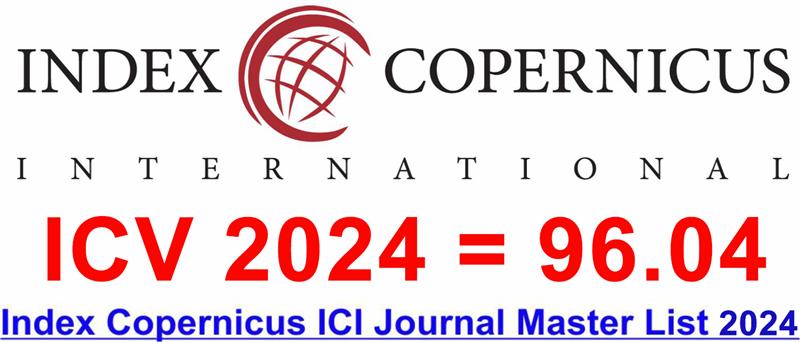Analyzing Dominance: Revealing the Interplay of Power and Knowledge in the Field of Social Psychology Beyond Traditional Narratives
DOI:
https://doi.org/10.60072/ijeissah.2023.v2i01.009Abstract
This study provides an examination of the dynamic relationship between power and knowledge within the realm of social psychology, surpassing conventional narratives. The field of social psychology has historically been shaped by prevailing narratives that serve to uphold and perpetuate established power dynamics. This study adopts a critical standpoint, interrogating the mechanisms through which power influences the generation of knowledge as well as the formulation of theories. This study aims to enhance this study’s comprehension of power and knowledge in the field of social psychology by engaging in the deconstruction of conventional narratives. This study employs a multidimensional approach to examine the diverse manifestations of power within the field, encompassing societal power structures, organisational dynamics, and personal viewpoints. Through the process of interrogating prevailing discourses and exploring alternative perspectives, this research uncovers latent power dynamics that influence the formulation of research inquiries, the selection of methodologies, and the interpretation of findings. Through the incorporation of a wide range of voices and perspectives, it becomes possible to cultivate a more comprehensive comprehension of power dynamics and generate knowledge that is equitable and fair in its social implications. This study enhances the author’s understanding of the dynamic relationship between power and knowledge within the field of social psychology, thereby enabling a transformative perspective on the examination of human behaviour and society.
Keywords:
Social Psychology, Power and Knowledge, Conventional NarrativesReferences
Alam, A., Mohanty, A., & Alam, S. (2020). Anthropology of Education: Discourses and Dilemmas in Analysis of Educational Patterns and Cultural Configurations towards Pursuit of Quality Education. Palarch’s Journal of Archaeologyof Egypt/Egyptology, Netherlands, 17(9), 7893-7924. https://archives.palarch.nl/index.php/jae/article/download/5675/5575
Al-Tammemi, A. a. B., Nheili, R., Jibuaku, C. H., Al Tamimi, D. a., Aljaberi, M. A., Khatatbeh, M., Fakhouri, H. N. (2022). A qualitative exploration of university students’ perspectives on distance education in Jordan: An application of Moore’s theory of transactional distance. Frontiers in Education, 7. https://doi.org/10.3389/feduc.2022.960660
Anderson, M. H., & Lemken, R. K. (2023). Citation Context Analysis as a Method for Conducting Rigorous and Impactful Literature Reviews. Organizational Research Methods, 26(1). https://doi.org/10.1177/1094428120969905
Biresselioglu, M. E., Demir, M. H., Kaplan, M. D., & Solak, B. (2020). Individuals, collectives, and energy transition: Analysing the motivators and barriers of European decarbonisation. Energy Research & Social Science, 66, 101493. https://doi.org/10.1016/j.erss.2020.101493
Boyd, R. L., & Schwartz, H. A. (2021). Natural Language Analysis and the Psychology of Verbal Behavior: The Past, Present, and Future States of the Field. Journal of Language and Social Psychology, 40(1), 21–41. https://doi.org/10.1177/0261927x20967028
de Haan, D., & Norman, L. (2020). Mind the gap: the presence of capital and power in the female athlete–male -coach relationship within elite rowing. Sports Coaching Review, 9(1), 95–118. https://doi.org/10.1080/21640629.2019.1567160
Doucet, F. (2019). Centering the Margins: (Re)Defining Useful Research Evidence Through Critical Perspectives. William T. Grant Foundation. https://files.eric.ed.gov/fulltext/ED609713.pdf
Escayg, K.-A. (2019). “Who’s got the power?”: A critical examination of the anti-bias curriculum. International Journal of Child Care and Education Policy, 13(1), 1-18. https://doi.org/10.1186/s40723-019-0062-9
Gone, J. P. (2021). Decolonization as methodological innovation in counseling psychology: Method, power, and process in reclaiming American Indian therapeutic traditions. Journal of Counseling Psychology, 68(3), 259–270. https://doi.org/10.1037/cou0000500
Hartig, T. (2021). Restoration in Nature: Beyond the Conventional Narrative. Nature and psychology: Biological, cognitive, developmental, and social pathways to well-being, 89-151. https://doi.org/10.1007/978-3-030-69020-5_5
Júnior, J. R. D. O., Limongi, R., Lim, W. M., Eastman, J. K., & Kumar, S. (2023). A story to sell: The influence of storytelling on consumers' purchasing behavior. Psychology & Marketing, 40(2), 239-261. https://doi.org/10.1002/mar.21758
Kent, J. L. (2022). The use of practice theory in transport research. Transport Reviews, 42(2), 222–244. https://doi.org/10.1080/01441647.2021.1961918
Khan, T. H., & MacEachen, E. (2021). Foucauldian Discourse Analysis: Moving beyond a Social Constructionist Analytic. International Journal of Qualitative Methods, 20(1), https://doi.org/10.1177/16094069211018009
Lim, W. M., Rasul, T., Kumar, S., & Ala, M. (2022). Past, present, and future of customer engagement. Journal of Business Research, 140, 439-458. https://doi.org/10.1016/j.jbusres.2021.11.014
Mohajan, D., & Mohajan, H. (2022). Feminism and Feminist Grounded Theory: A Comprehensive Research Analysis. https://mpra.ub.uni-muenchen.de/114914/1/MPRA_paper_114914.pdf
Mohammed, L. A., Aljaberi, M. A., Amidi, A., Abdulsalam, R., Lin, C.-Y., Hamat, R. A., & Abdallah, A. M. (2022). Exploring Factors Affecting Graduate Students’ Satisfaction toward E-Learning in the Era of the COVID-19 Crisis. Eur. J. Investig. Health Psychol. Educ., 12(8), 1121-1142. https://www.mdpi.com/2254-9625/12/8/79
Mohammed, L.A., Aljaberi, M.A., Anmary, A.S., Abdulkhaleq, M. (2023). Analysing English for Science and Technology Reading Texts Using Flesch Reading Ease Online Formula: The Preparation for Academic Reading. In: Al-Sharafi, M.A., Al-Emran, M., Al-Kabi, M.N., Shaalan, K. (eds) Proceedings of the 2nd International Conference on Emerging Technologies and Intelligent Systems . ICETIS 2022. Lecture Notes in Networks and Systems, vol 573. Springer, Cham. https://doi.org/10.1007/978-3-031-20429-6_50
Pearson, A., & Rose, K. (2021). A Conceptual Analysis of Autistic Masking: Understanding the Narrative of Stigma and the Illusion of Choice. Autism in Adulthood, 3(1). 52-60 https://doi.org/10.1089/aut.2020.0043
Persmark, A., Wemrell, M., Evans, C. R., Subramanian, S. V., Leckie, G., & Merlo, J. (2020). Intersectional inequalities and the U.S. opioid crisis: challenging dominant narratives and revealing heterogeneities. Critical Public Health, 30(4)–398-414. https://doi.org/10.1080/09581596.2019.1626002
Raji, I. D., Scheuerman, M. K., & Amironesei, R. (2021). You Can’t Sit With Us. Proceedings of the 2021 ACM Conference on Fairness, Accountability, and Transparency. 515-525 https://doi.org/10.1145/3442188.3445914
Ramasubramanian, S., & Banjo, O. O. (2020). Critical Media Effects Framework: Bridging Critical Cultural Communication and Media Effects through Power, Intersectionality, Context, and Agency. Journal of Communication, 70(3), 379–400. https://doi.org/10.1093/joc/jqaa014
Rankin, Y. A., Thomas, J. O., & Erete, S. (2021). Black Women Speak: Examining Power, Privilege, and Identity in CS Education. ACM Transactions on Computing Education, 21(4), 1–31. https://doi.org/10.1145/3451344
Savage, M. (2021). The Return of Inequality: Social Change and the Weight of the Past. Harvard University Press.
Skubikowski, K., Wright, C., & Graf, R. (2023). Social Justice Education: Inviting Faculty to Transform Their Institutions. Taylor & Francis.
Walker, C., & Baxter, J. (2019). Method Sequence and Dominance in Mixed Methods Research: A Case Study of the Social Acceptance of Wind Energy Literature. International Journal of Qualitative Methods, 18, https://doi.org/10.1177/1609406919834379
























